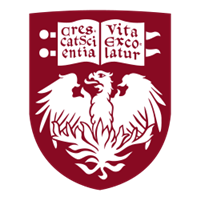
- Find Your College
- Scholarships
- Pay for College
-
Articles
- COLLEGES
- Most Recent
- Affordability & Cost
- College Search
- Comparisons
- College Majors & Minors
- Myths
- News & Trends
- Tips, Tools & Advice
- Admissions
- Most Recent
- ACT & SAT
- College Admissions
- College Applications
- Myths
- Online Colleges
- Questions & Answers
- About
- Home
- >
- Browse All Majors
- >
- Biological And Biomedical Sciences
- >
- Genetics
- >
- Molecular Genetics
Molecular Genetics
Select Type of Degree:
Select State:
|
#1

Rutgers University-New Brunswick
|
|||||||||||
|
#2

University of Chicago
|
|||||||||||
|
#3

Black Hills State University
|
|||||||||||
|
#4

Ohio State University-Main Campus
|
|||||||||||
|
*The estimated net prices above are College Raptor’s estimate. Please contact the college financial aid office for actual net cost figures.
|
|||||||||||
| Institution | Scaled Score | Acceptance Rate | Annual Degrees Awarded | SAT Score | Est. Net Price * | Median Starting Salary | Save | |
|---|---|---|---|---|---|---|---|---|
 Rutgers University-New Brunswick New Brunswick, NJ At Rutgers University-New Brunswick, the three most popular college majors...view more | 100 | 65% | 13 | 1,280 - 1,480 | $19,052 | $47,774 | ||
 University of Chicago Chicago, IL UChicago has 51 academic majors available to students in five divisions: Biological Sciences Collegiate...view more | 99 | 5% | 6 | 1,510 - 1,560 | $27,979 | $45,305 | ||
 Black Hills State University Spearfish, SD Every year, Black Hills State University awards about 71 degrees to students...view more | 95 | 94% | 4 | 970 - 1,140 | $16,474 | $53,554 | ||
 Ohio State University-Main Campus Columbus, OH Annually, Ohio State University-Main Campus awards around 794 degrees to...view more | 79 | 51% | 5 | 1,340 - 1,450 | $19,575 | $50,469 |
*The estimated net prices above are College Raptor’s estimate. Please contact the college financial aid office for actual net cost figures.
About Molecular Genetics
A program that focuses on the scientific study of genetic structures and mechanisms of organisms, including bacteria, phages, and viruses. Includes instruction in the replication, expression, transfer, structure, maintenance, and stability of heritable information in DNA, RNA, and proteins; the regulation of these processes; and neurogenetics.
New Jersey awards the most Masters degrees in Molecular Genetics of all US states with 13 degrees being awarded last year. Students interested in Molecular Genetics can expect around 71% percent of their classmates to be women and 29% percent of their classmates to be male. Most students graduating in this field earn a Doctors degree research scholarship. The average annual income for an undergraduate degree in Molecular Genetics is $42,090.
Careers
Some top jobs related to Molecular Genetics, include Biological Science Teachers, Postsecondary and Biological Scientists, All Other, both of which are in high demand. Though there are higher paying jobs, like Natural Sciences Managers. the most available position for Molecular Genetics majors is Natural Sciences Managers.
Top Paying Careers
These are the highest paying careers for Molecular Genetics majors.
| Career | Median Salary | Average Annual Job Openings | Employment 2022 | Employment 2032 | % Change | |
|---|---|---|---|---|---|---|
| Natural Sciences Managers Clinical Research Coordinators Water Resource Specialists | $157,740 | 2,203 | 29,255 | 30,679 | 5% | |
| Genetic Counselors | $95,770 | 108 | 1,270 | 1,452 | 14% | |
| Biological Scientists, All Other Bioinformatics Scientists Molecular and Cellular Biologists Geneticists Biologists | $91,100 | 1,518 | 19,509 | 20,252 | 4% | |
| Biological Science Teachers, Postsecondary | $83,920 | 1,758 | 19,593 | 21,257 | 9% |
Most In-Demand Careers
These are the careers in highest demand for Molecular Genetics majors.
Student Demographics




Subscribe to Our Newsletter
Join thousands of students and parents learning about finding the right college, admissions secrets, scholarships, financial aid, and more.

College Raptor, Raptor, InsightFA, FinanceFirst, and “The Right College. The Best Price.” are registered trademarks of College Raptor, Inc.


